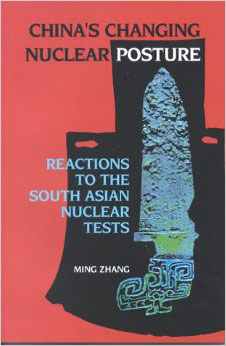Source: Washington, DC: Carnegie Endowment for International Peace, 1999
About the Book
This inside look at the history and politics of the changing nuclear posture of the People's Republic of China is based on extensive analysis of Chinese and Western documents and interviews conducted in China in the fall of 1998. Examining China's reaction to the nuclear tests by India and Pakistan, the monograph details the internal discussions that provoked Vice Premier Qian Qichen's warning that Asia faced a nuclear arms race. Author Ming Zhang describes the debate among China's civilian policymakers and leading members of the People's Liberation Army, as the government considers its nuclear force options.
China's response to the South Asian tests and possible deployment of nuclear weapons on the Subcontinent will have a profound impact on the future of the international non-proliferation regime. Zhang provides a clear guide to China's internal mechanisms for developing nuclear policy and new details on Chinese nuclear force structure and doctrine. He concludes with a detailed examination of three likely scenarios for China's nuclear policy over the next five years, including the characteristics of force structure and deployment.
The new data and unique perspective make this essential reading for any analysis of China's nuclear future and its impact on the region.
A specialist on Asian security, Ming Zhang was born and educated in the People's Republic of China, received his Ph.D. in the United States, and has been an analyst with the Library of Congress and the U.S. National Defense University.
